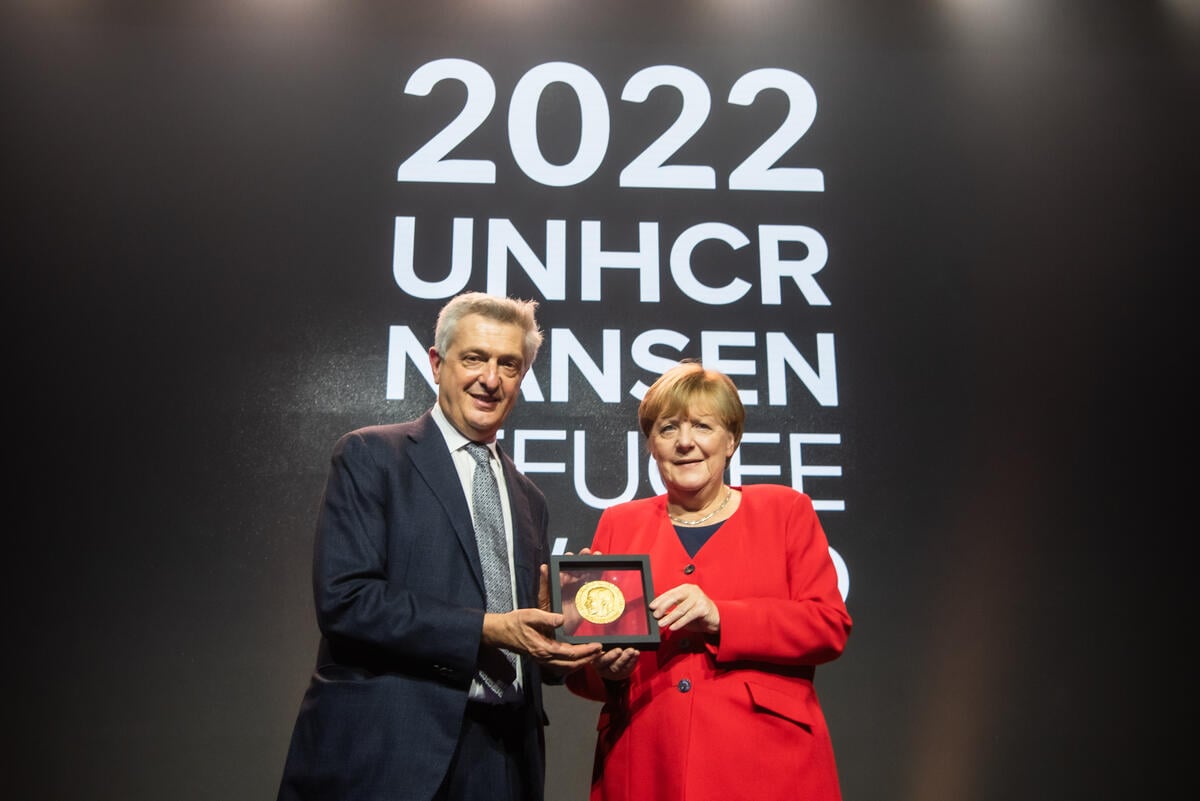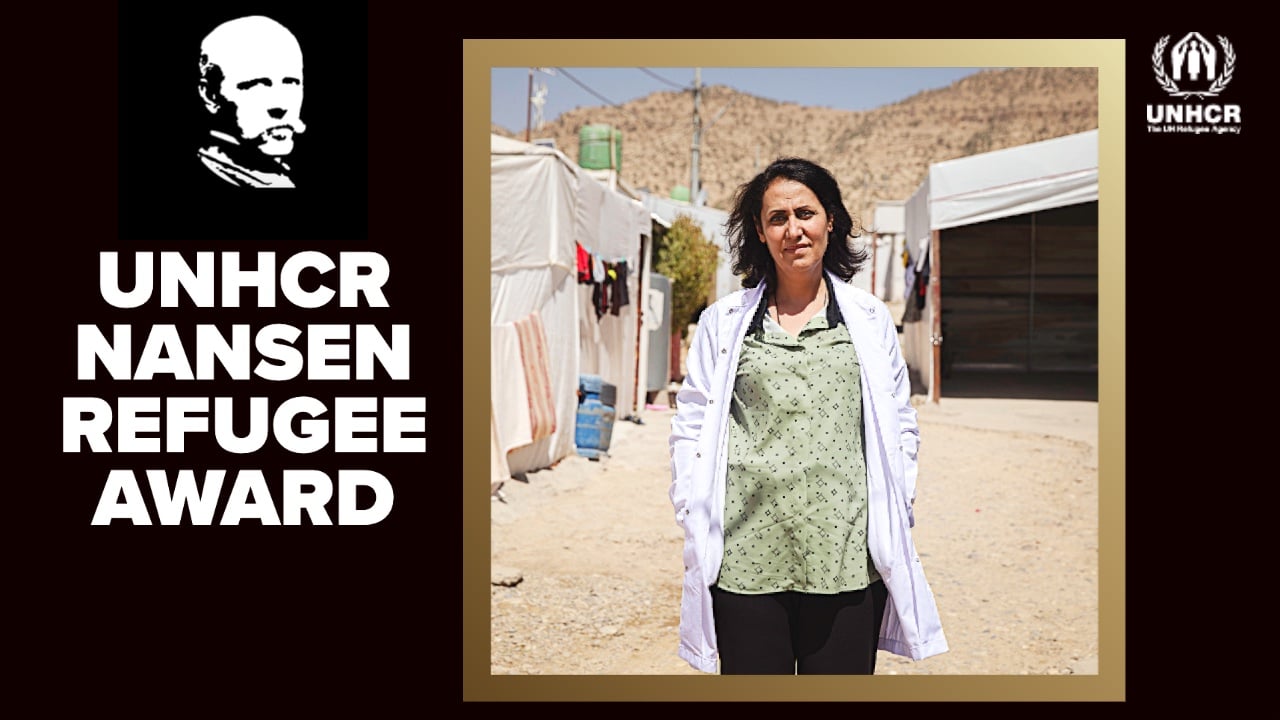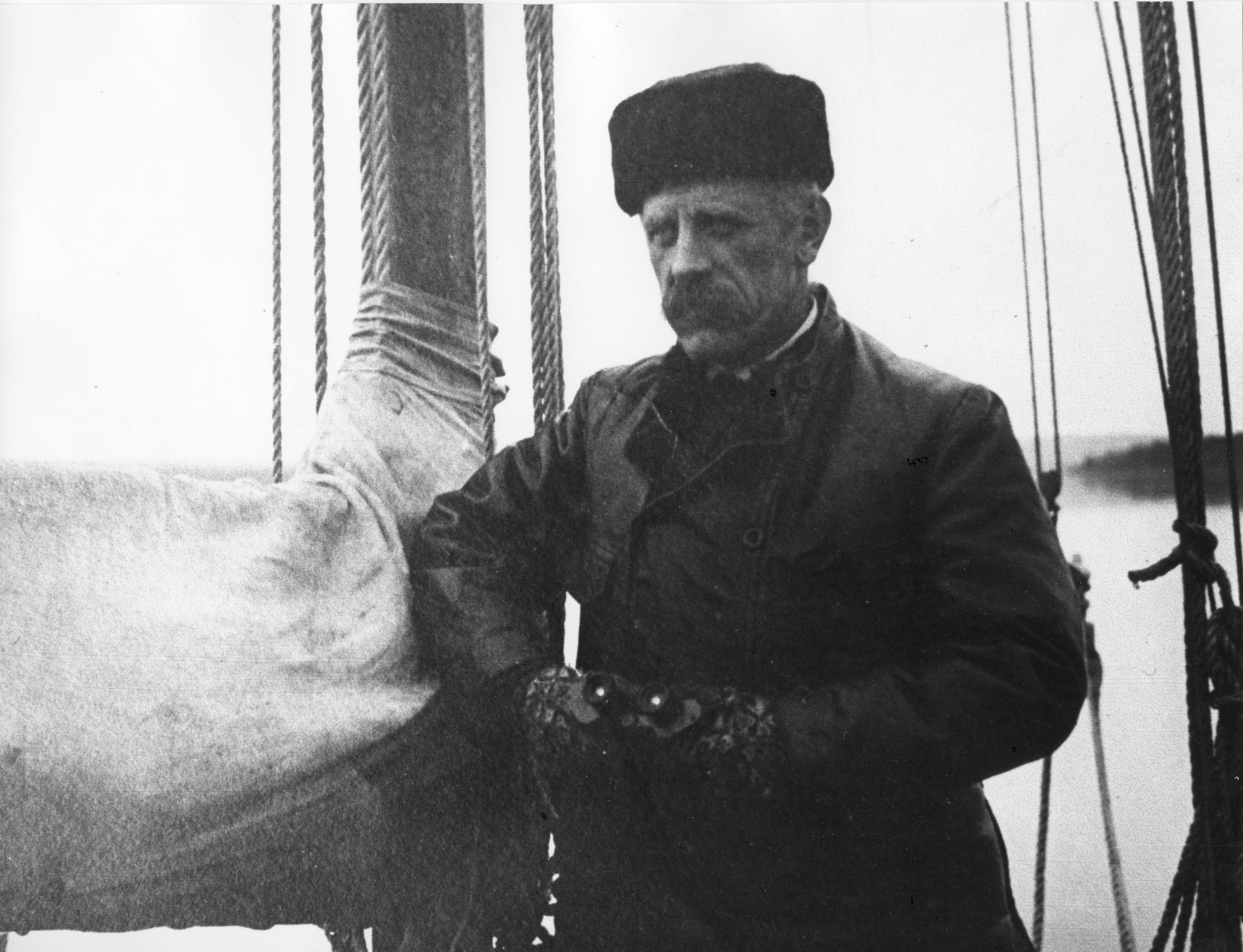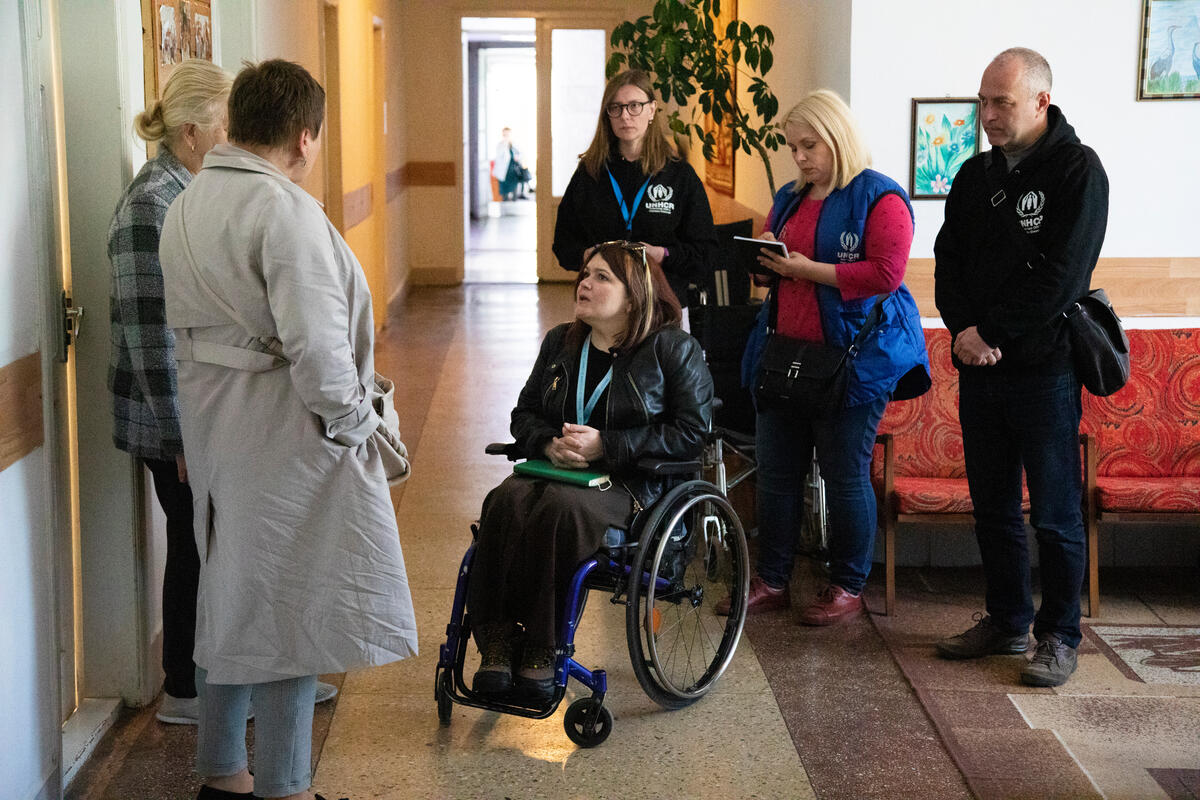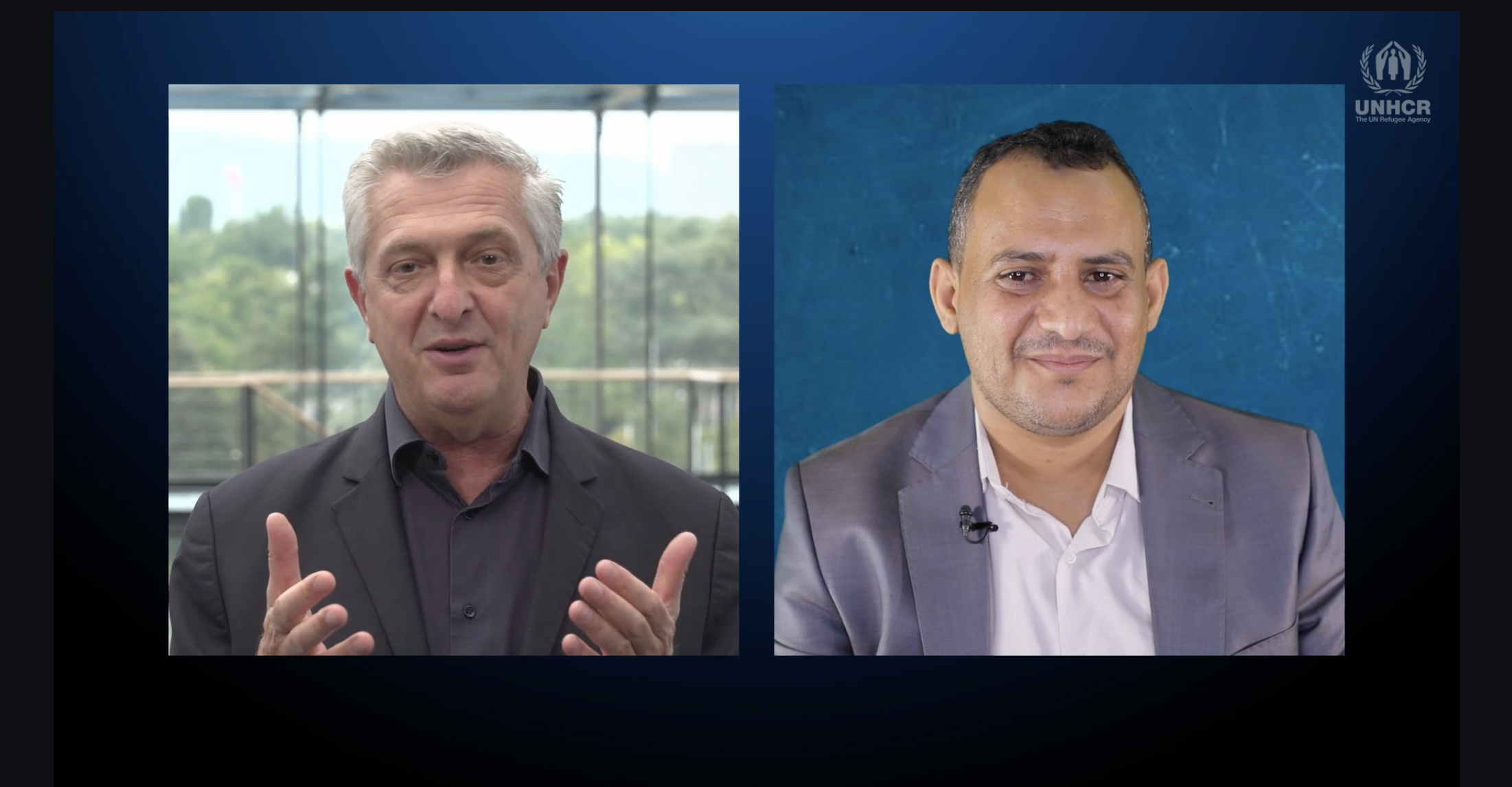UNHCR chief presents Nansen Refugee Award to inspiring Congolese nun
UNHCR chief presents Nansen Refugee Award to inspiring Congolese nun

GENEVA, September 30 (UNHCR) - UN High Commissioner for Refugees António Guterres on Monday night presented the annual UNHCR Nansen Refugee Award to an inspiring Congolese nun in recognition of her work helping hundreds of displaced and abused women to rebuild their lives.
"This prize, this medal, is not only for me - it is also for all the women, the girls and the children who have been abducted by the LRA [Lord's Resistance Army rebel group from Uganda]," Sister Angélique Namaika said after receiving the Nansen Medal from Guterres at a ceremony in Geneva's Bâtiment des Forces Motrices.
"I will never give up, because even if I help only one person it's already a success," added the 46-year-old Roman Catholic nun from Orientale province in the Democratic Republic of the Congo (DRC) at a ceremony attended by several hundred people, including delegates attending UNHCR's annual Executive Committee meeting,
Guterres said that he had heard and seen many bad things during his visits to refugees and other forcibly displaced people in Africa. "And it is when you look at Sister Angélique that all of a sudden your perspective also changes," he said. "And you believe that God has a hand. She is the hand of God."
Named after celebrated Norwegian polar explorer, diplomat, scientist and humanitarian, Fridtjof Nansen, the Nansen Refugee Award was established in 1954 to honour a person, group or organization for their outstanding work on behalf of the forcibly displaced.
Sister Angélique is the latest in a line of illustrious winners, recognized for her role in helping to transform the lives of more than 2,000 women and girls who have been forced from their homes and abused by the LRA or other armed groups in the Dungu region of the DRC's Orientale province.
Many of those she helps through her Centre for Reintegration and Development have suffered abduction, forced labour, beatings, murder, rape or other human rights abuses. Her one-on-one approach helps them recover from the trauma and damage. On top of the abuse they have suffered, these vulnerable women and girls are often ostracized by their own families and communities because of the stigma attached to sexual violence.
Sister Angélique helps these victims regain confidence and become self-sufficient by teaching them a trade and how to start a small business or by encouraging them to go back to school. Testimonies from these women show how she has turned around their lives, with many affectionately calling her "mother." Having been displaced by LRA violence in 2009, the Sister learned first had the pain of forced displacement.
Since being named this year's Nansen Refugee Award winner on September 17, Sister Angélique has received accolades and congratulations from people around the world. Earlier on Monday, UNHCR Special Envoy Angelina Jolie sent a message of warm congratulations and said Sister Angélique's work could "help to draw attention to the devastating effects of rape and sexual violence and the need for justice and help for survivors."
Best-selling Brazilian author Paulo Coelho, in a keynote speech at Monday's Geneva event, also praised the Nansen laureate, describing her as a lesson in compassion. The Award ceremony featured musical performances by British singer-songwriter Dido, Malaysian singer-songwriter Yuna and Grammy-nominated Malian musicians, Amadou and Mariam. "It was brilliant to meet Sister Angélique and inspiring to perform for her," said Dido after singing.
Following the ceremony, Sister Angélique will travel to Rome, where she will be received at the Vatican by Pope Francis on 2 October before proceeding to Paris, Brussels and Oslo for other meetings. The award consists of a commemorative medal and a US$100,000 monetary prize donated by the governments of Norway and Switzerland to support a project of the laureate's choice.
The presentation of the 2013 Nansen prize followed the release earlier this month of a report about life for those displaced by LRA violence. Since 2008, hundreds of thousands of people have been forced to flee in DRC's north-eastern province of Orientale - in some cases several times. Today, an estimated 320,000 of them are still living in displacement. The report, supported by UNHCR and the IDMC (Internal Displacement Monitoring Centre), highlights why LRA violence has created such severe and long-lasting trauma for both the abductees and the hundreds of thousands of people still too afraid to return home.









